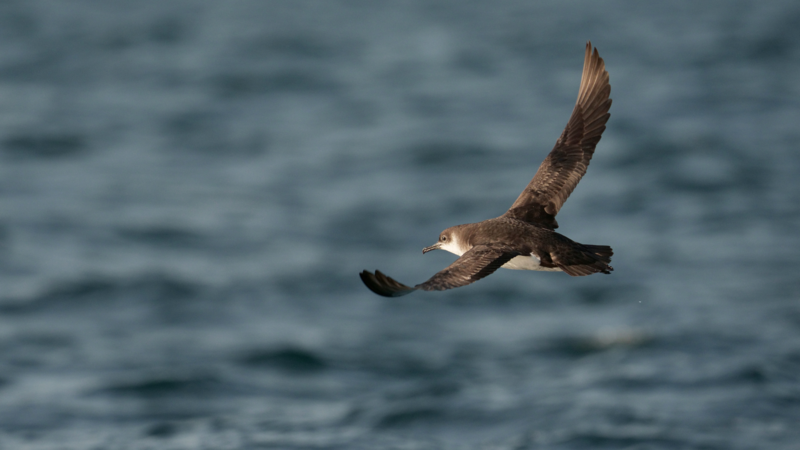Researchers at the Department of Biology's OxNav group will be conducting a 3-year research project on UK seabirds – specifically Procellariiformes (shearwaters and storm-petrels) – in collaboration with the Joint Nature Conservation Committee (JNCC), RSPB, and the University of Gloucestershire.
ProcBe (Procellariiform Behaviour and Demographics), is funded by the Offshore Wind Evidence and Change Programme, an ambitious strategic research and data-led Programme being led by The Crown Estate in partnership with the Department for Energy Security and Net Zero and Department for Environment, Food & Rural Affairs. The project will explore the interactions between Manx shearwaters and storm-petrels and offshore wind farms. OxNav will focus on Manx shearwaters, using existing and new tracking data to characterise at-sea movements, behaviour, distributions, flight heights and speeds, and connectedness to Special Protected Areas.
Offshore wind farms have the potential to impact seabirds in several ways, including through mortality caused by collision, displacement from foraging areas, and by acting as barriers to movement. Evidence gaps exist around the potential interactions between shearwaters and storm-petrels and offshore wind developments. This is particularly important given the proposed expansion of offshore wind developments into the Celtic and Irish Seas and off the west coast of Scotland where these species are found in some of the highest densities in the UK.
The UK is home to an internationally important 70-90% of the global population of breeding Manx shearwaters (Puffinus puffinus) as well as around 10% and 0.5% of the global European (Hydrobates pelagicus) and Leach’s storm-petrels (Hydrobates leucorhous) respectively. Despite the importance of these species in the UK, relatively little is known about their populations, demography, and at-sea behaviour, as they are difficult to study. This is partly due to their breeding behaviour (they are nocturnal and nest in burrows on offshore islands) but also, in the case of storm-petrels, their small size has prevented the use of certain techniques such as GPS tracking until recently.
The project has the potential to make significant advances in our understanding of the behaviour of some of the UK’s most important seabirds around offshore wind farms. It will help the UK to meet its dual ambitions for achieving Net Zero and nature recovery by informing the sustainable acceleration of renewable energy development.

A Manx shearwater, for which the UK is home to 70-90% of the global breeding population